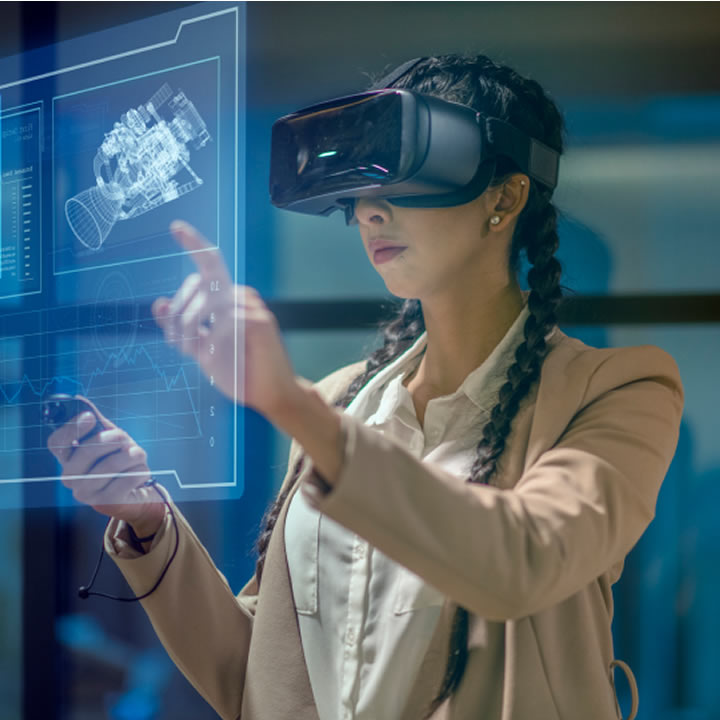VR, or virtual reality, is a term used to describe computer-generated simulations of three-dimensional environments that a user may move around and interact with as if they were in the real world while wearing specialized electronic equipment, such as a headset with a screen and sensors.
VR allows users to experience and control their environment in a way that feels virtually real, immersing them in a completely different world. It has multiple uses, ranging from gaming and entertainment to education and training simulations for industries like healthcare and the military.
The technology behind VR has been in development for decades. However, it has recently seen a surge in popularity and accessibility thanks to advancements in computer technology and affordable consumer VR headsets, such as the Oculus Rift and HTC Vive.
Extended Reality (XR)
Extended Reality (XR), a term that encompasses VR, augmented reality (AR), and mixed reality (MR), is also rapidly gaining traction as technology continues to advance.
To fully understand VR, it’s important to be familiar with related technologies such as augmented reality (AR) and mixed reality (MR). AR overlays digital information onto the real world, while MR combines elements of both virtual and real worlds.
XR is an umbrella term that encompasses all forms of immersive technology, including VR, AR, and MR.
XR Course – Reality Course
At Reality Course, is offered comprehensive XR training, including mixed, augmented, and virtual reality courses.
Expert instructors have years of experience in the industry and will equip you with the skills and knowledge you need to stay competitive in today’s rapidly advancing technological landscape.
What is the Effectiveness of XR Training?
Numerous studies and reports have shown the effectiveness of XR training in various industries, such as healthcare, construction, military, and education. XR training can increase retention rates, improve performance, and reduce the cost of traditional training methods.
Overall, XR training has proven to be a valuable and highly effective tool for education and training.
XR training benefits in detail
1) Increase Retention Rates
The first benefit of XR training is that it can increase retention rates.
A study on the use of VR in medical education found that students who used VR to practice a medical procedure had significantly higher retention rates compared to those who learned through traditional methods.
2) Improve Performance
Not only does XR course improve retention, but it can also improve performance.
In a study on the use of VR in firefighting training, firefighters who utilized VR simulation had better performance in real-life scenarios than those who did not receive VR training.
3) Reduce Costs
In addition to improving retention and performance, XR training can also reduce the cost of traditional training methods.
A study on VR in construction found that using VR simulation for equipment operation reduced costs by 70%.
4) Safe and Immersive Practice Environment
XR training also offers a safe and immersive environment for individuals to practice and learn new skills without risking real-life consequences. This can be especially useful in industries such as healthcare and the military, where mistakes can have serious consequences.
Final Words
The Reality Course offers the best virtual reality courses for those looking to enter the VR industry or improve their skills. These courses cover various topics, including VR development, design, and storytelling.
Sign up for one of the XR courses today and join the future of immersive technology.

